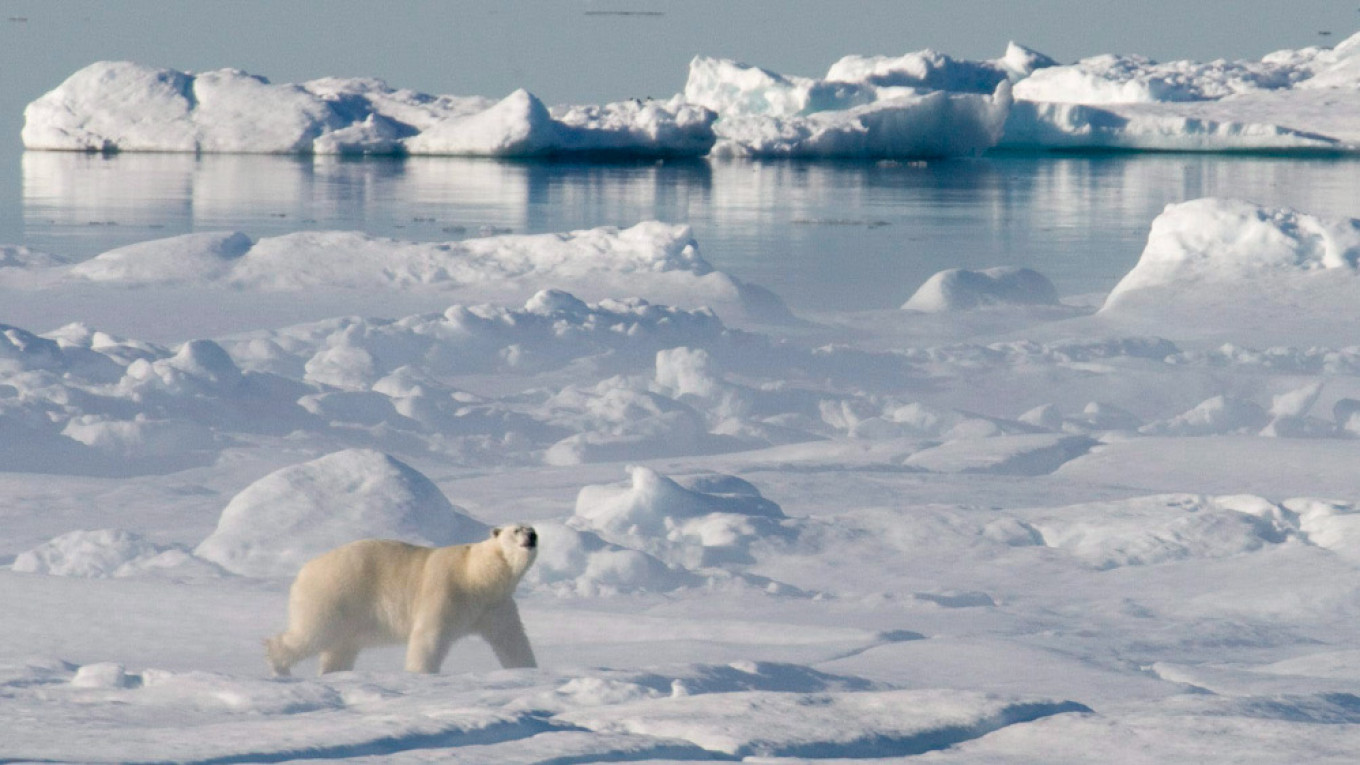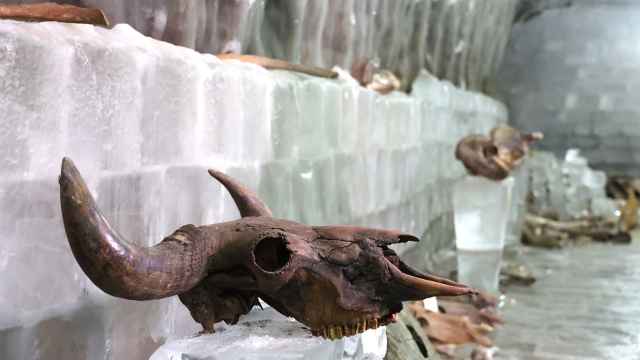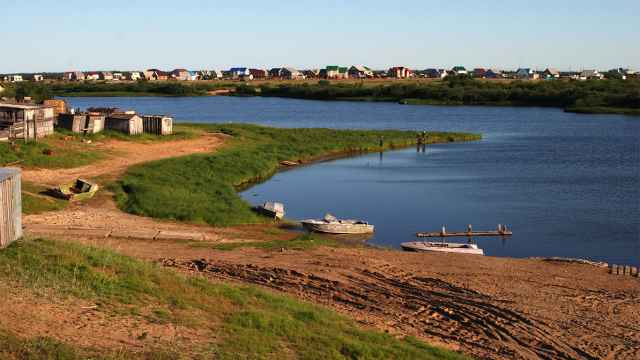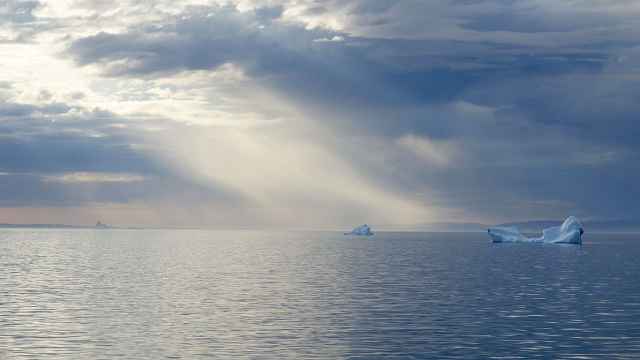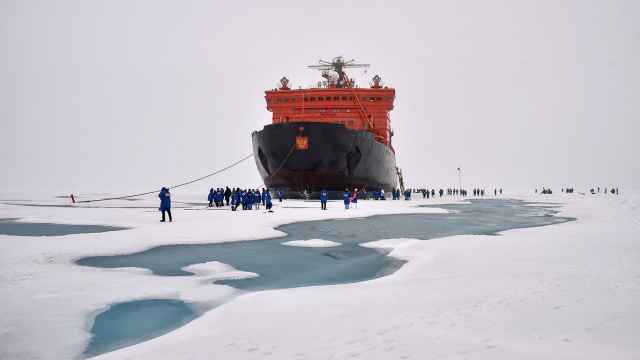Parts of Russia’s Arctic are currently experiencing warmer temperatures than the Mediterranean Sea as the region faces a ferocious heatwave.
Temperatures in the Arctic Circle village of Nizhnaya Pesha hit 30 degrees Celsius (86.5 degrees Fahrenheit) Wednesday, a measurement Scottish meteorologist Scott Duncan called “truly exceptional for any time of the year but mind-boggling for May.”
According to his analysis, mid-May temperatures on the shores of the Barents Sea were higher than on the beaches of Croatia and southern France as well as some parts of Italy.
Temperatures across the Arctic region are now 20-24 degrees Celsius higher than normal for this time of year, Duncan said. According to state meteorological service Roshydromet, the heat anomaly originates from southwestern Siberia and has spread throughout most of central Russia.
In settlements near the Arctic Circle like Naryan-Mar, Arkhangelsk and Salekhard, the temperature has been hovering around 25-30 C for several days, the Barents Observer reported.
The sweltering temperatures come as a report on Thursday said that the Arctic has warmed three times more quickly than the planet as a whole, and faster than previously thought.
Warming has immediate consequences for the Arctic ecosystem, including changes in habitat, food habits and interactions between animals — including the iconic polar bear — and the migration of some species.
From Siberia to Alaska, forest fires have also become a problem.
Weather anomalies have been recorded further south as well. St. Petersburg recording its hottest May 12 (26.7 C) in 58 years just days after it saw snowfall, while Moscow and several other Russian cities broke all-time heat records on Monday.
Extreme weather events in Russia have doubled in frequency in the last 20-25 years, Roshydromet head Roman Vilfand said in an interview with the Ura.ru news website last year. UN scientists, who have observed a similar trend worldwide since 2000, concluded that climate change is the likely cause.
The Arctic heat wave also comes as foreign ministers gather in Reykjavik, Iceland, for a meeting of the Arctic Council that marks the start of Russia’s two-year presidency at Council meetings. Russia’s guiding principles for its time as the Council’s chair prioritize socioeconomic development and protecting the Arctic against climate change.
Yet in its Arctic Strategy 2035, published last year, the Russian government seeks to develop numerous fossil fuel projects in the region. As International Energy Agency experts call for a total freeze on investment into new fossil projects, Russia aims to increase its liquified natural gas (LNG) production tenfold by 2035.
AFP contributed reporting.
A Message from The Moscow Times:
Dear readers,
We are facing unprecedented challenges. Russia's Prosecutor General's Office has designated The Moscow Times as an "undesirable" organization, criminalizing our work and putting our staff at risk of prosecution. This follows our earlier unjust labeling as a "foreign agent."
These actions are direct attempts to silence independent journalism in Russia. The authorities claim our work "discredits the decisions of the Russian leadership." We see things differently: we strive to provide accurate, unbiased reporting on Russia.
We, the journalists of The Moscow Times, refuse to be silenced. But to continue our work, we need your help.
Your support, no matter how small, makes a world of difference. If you can, please support us monthly starting from just $2. It's quick to set up, and every contribution makes a significant impact.
By supporting The Moscow Times, you're defending open, independent journalism in the face of repression. Thank you for standing with us.
Remind me later.


